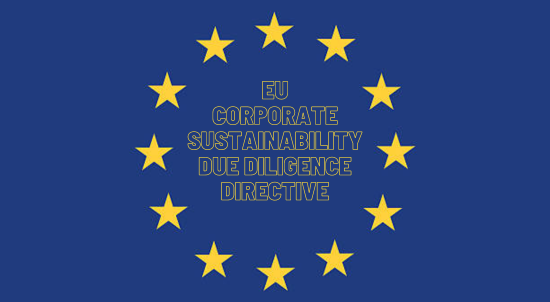The EU Corporate Sustainability Due Diligence Directive: A Momentous Development, but More Needed to Keep People and the Planet at the Heart of Due Diligence

The EU Council has at last endorsed the Corporate Sustainability Due Diligence Directive (CSDDD), a legal framework intended to integrate respect for human rights and environmental integrity into business and finance decisions. While the compromise reached to advance the law falls short of ensuring responsible business conduct throughout value chains, it does indicate progress toward an economic order better aligned with planetary boundaries and human rights principles. For this, we applaud. It is now up to the JURI committee of the European Parliament and the full Parliament to carry the bill forward.
In our work, we know well that the status quo of requiring community stakeholders to bear the entire brunt of environmental and social risks and harm is untenable and unsustainable for humanity. Ensuring that communities impacted by environmental and social harm enabled by business is therefore a positive step forward. It is therefore worth celebrating that under the CSDDD, major corporate actors will be required to identify and mitigate actual and potential adverse impacts on human rights and the environment, including by establishing grievance mechanisms accessible to any stakeholders impacted by their operations or the activities they support.
However, as the CSDDD has progressed through the legislative process, its scope has been gradually and significantly eroded. For now, the framework will apply to only the largest European companies, which leaves an accountability gap for harms caused by 99% of EU companies. Further, the financial sector is largely left out of the CSDDD, save for expectation to develop climate transition plans and conduct upstream due diligence. With respect to downstream due diligence, regulated financial actors will be expected only to “consider” adverse downstream impacts and to use available leverage to influence company responses, such as through the exercise of shareholders’ rights. Thankfully, there remains a commitment to eventually consider including the downstream due diligence of financial services under the law.
The exclusion of the financial sector is beyond disappointing given the long history of harm stemming from financial flows. Finance actors lobbied hard to limit the scope of the CSDDD, arguing in part that voluntary frameworks were enough to ensure their management of human rights and environmental risks and impacts. We have seen with the recent departures of major banks from the Equator Principles association that this is not necessarily the case, and more needs to be done to ensure that the financial sector is accountable for its impacts on the world. In fact, it is in the sector’s best interests to do so. Connecting with and hearing from the stakeholders directly impacted by the programs and projects enabled by finance is crucial to truly understanding environmental and social performance, managing financial, legal, and reputational risks, and optimizing investments in a world demanding sustainability.
We will keep monitoring the movement of the CSDDD through the EU parliament and member states. While the CSDDD’s advancement is commendable, finalizing the CSDDD should be the beginning – not the end – of conversations on how to ensure that business and finance operates in a just, sustainable, and accountable way.
Related Posts
- 26 February 2024 One key move that will boost corporate sustainability
- 19 December 2023 The EU’s Corporate Sustainability Due Diligence Directive – One More Step Towards Fully Accountable Finance
- 13 October 2023 Accountability for a Just Transition
- 13 September 2023 Driving Global Change: The Role of Public Development Banks to Mobilize Private Capital for Sustainable Infrastructure

